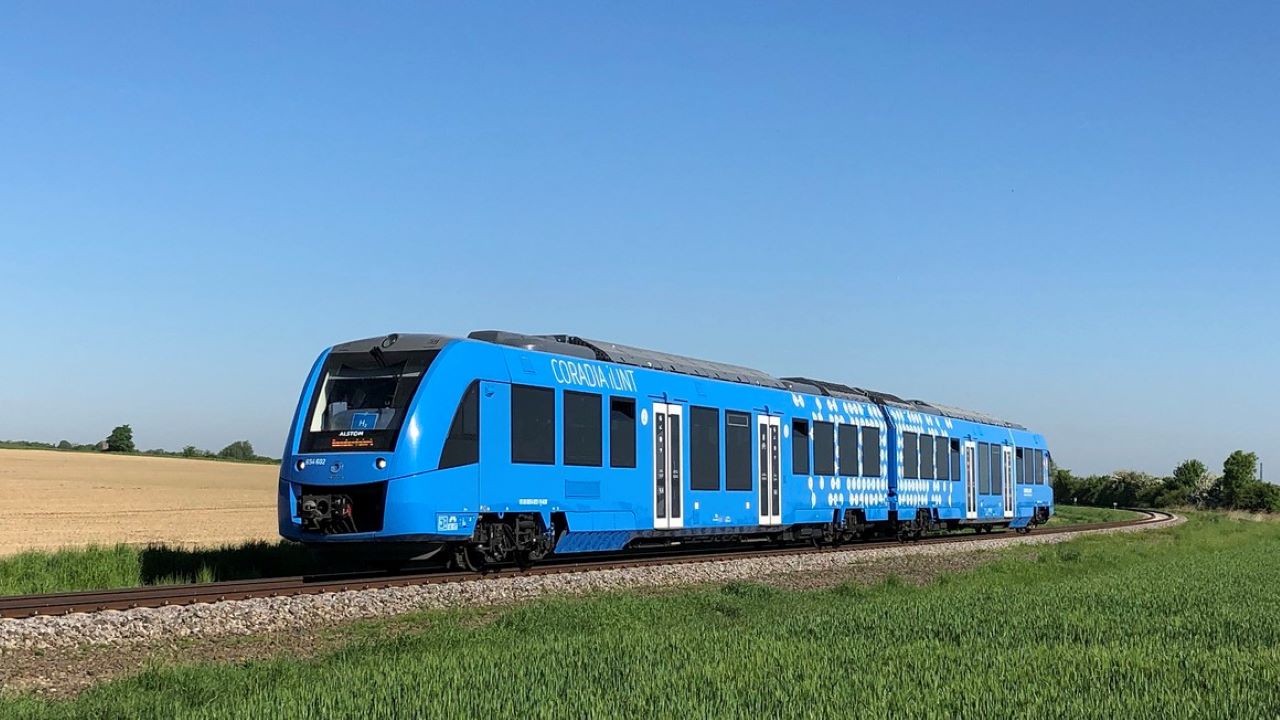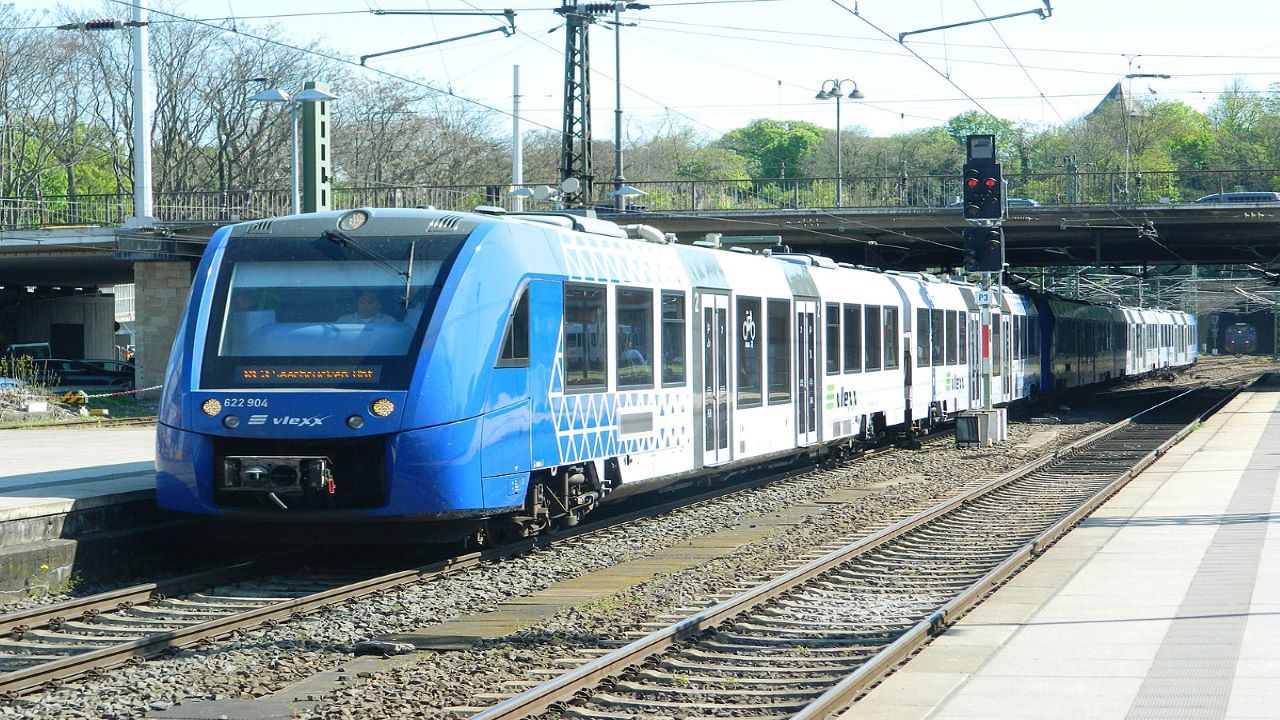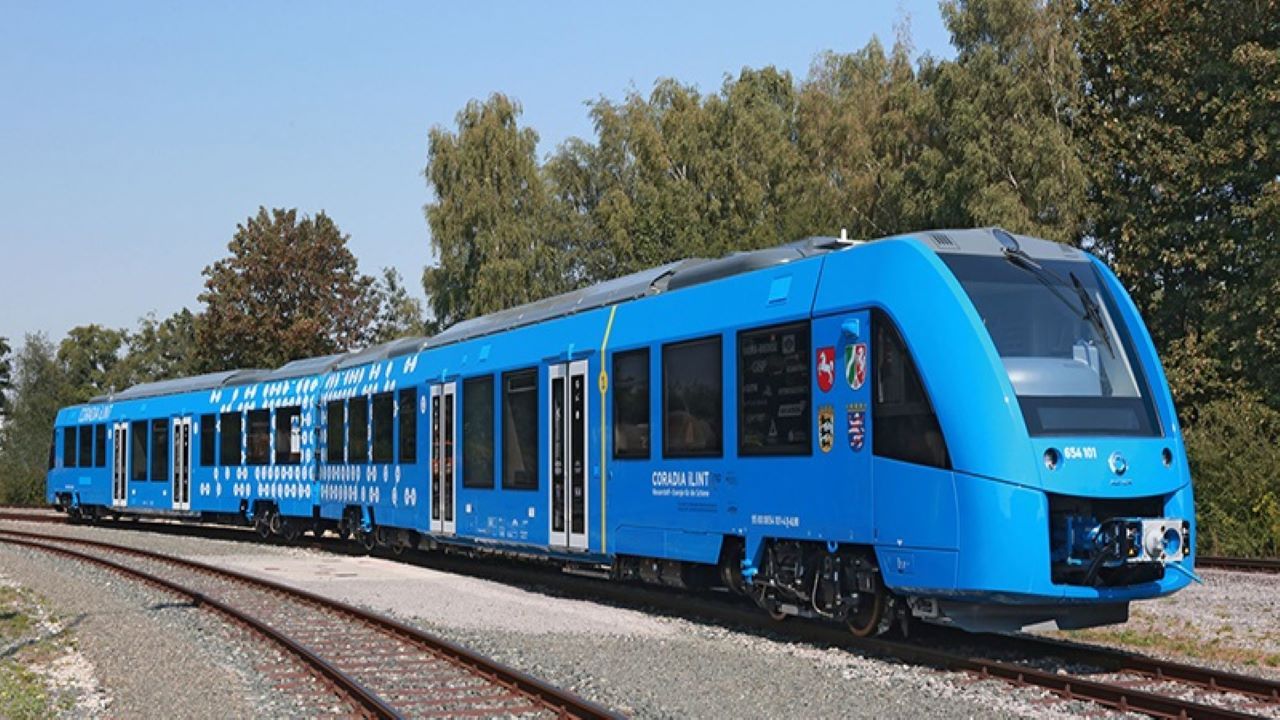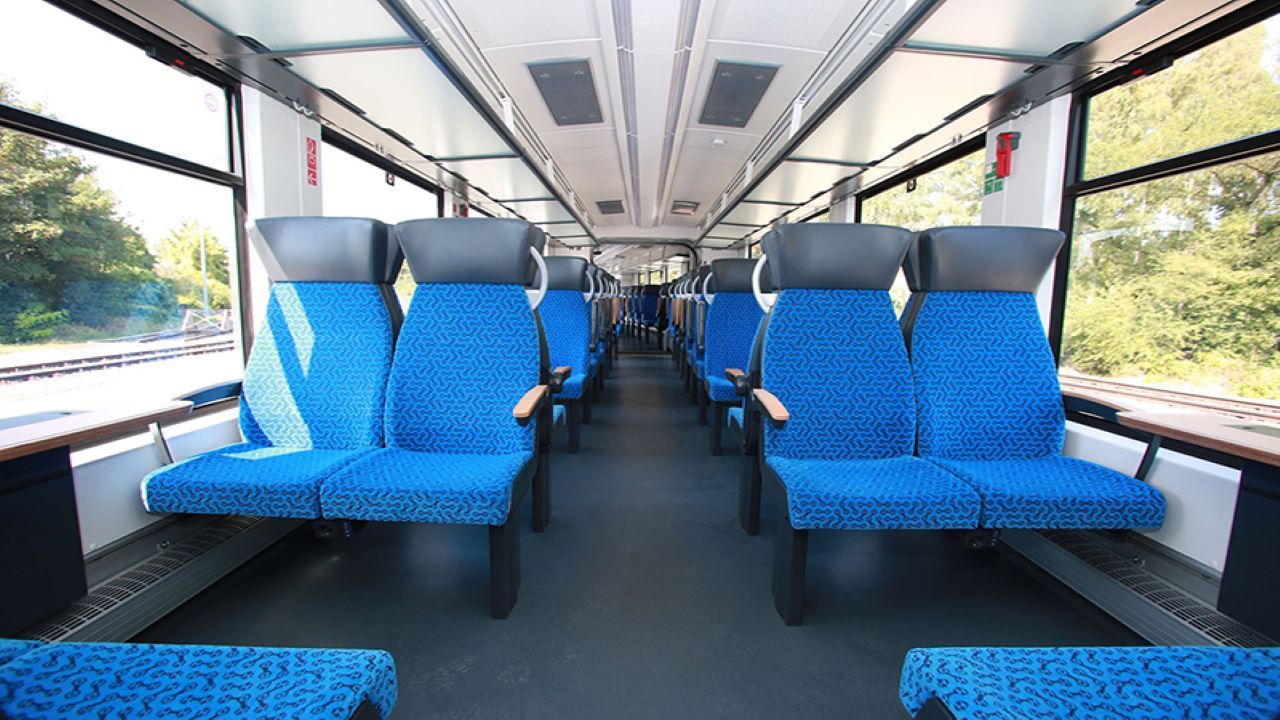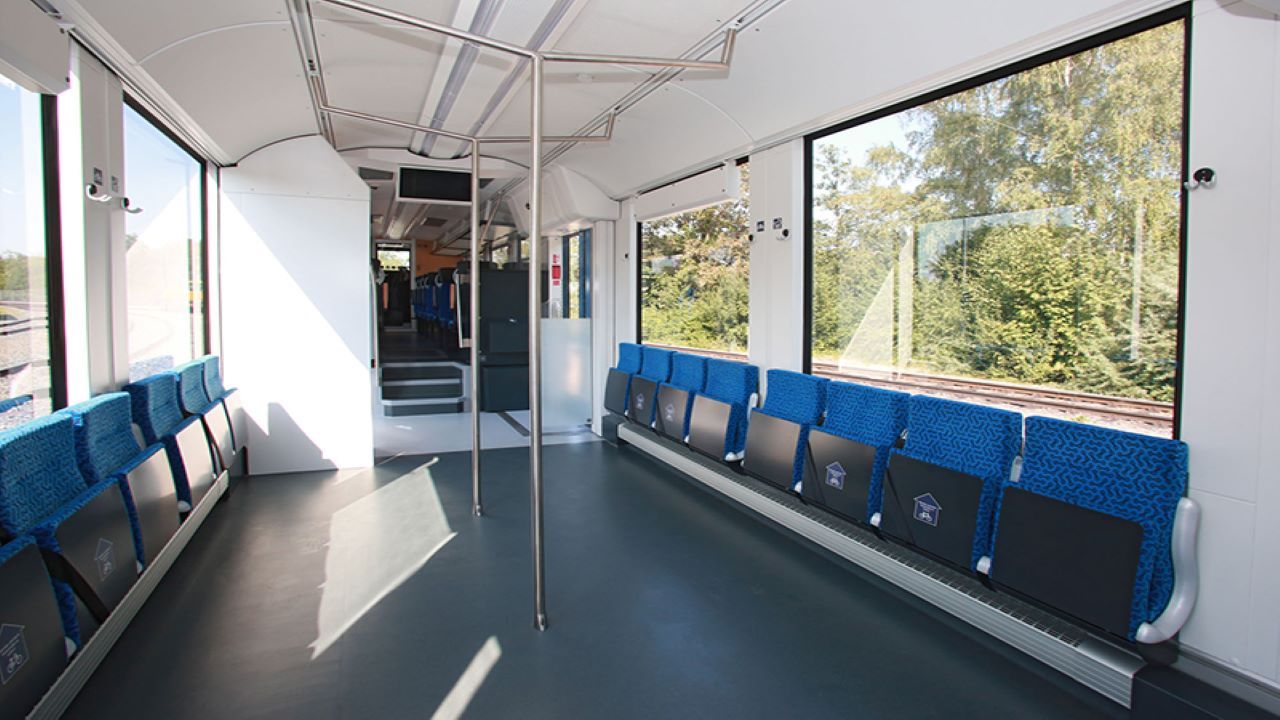Coradia iLint, the latest in the Coradia range of modular trains manufactured by Alstom Transport, is the world’s first passenger train to use hydrogen fuel cells for traction power.
The zero-emission regional train has low levels of noise and only emits steam and condensed water. The train won GreenTec Mobility Award 2018 at an event held in Munich in May 2018.
Coradia iLint is based on Alstom’s flagship Coradia Lint 54 diesel train and is suitable for operations on non-electrified networks. Trains are currently being manufactured in Salzgitter, Germany.
Alstom signed letters of intent for 60 trains with the German states of Lower Saxony, North Rhine-Westphalia and Baden-Württemberg, as well as with the Hessian transport association Rhein-Main-Verkehrsverbund.
The train was approved by the German Railway Office (EBA) for passenger services in Germany in July 2018.
Two pre-series Coradia iLint hydrogen fuel cell trains supplied by Alstom started operating in Lower Saxony in September 2018 and have completed successful trial operation in May 2020.
Tests of the Coradia iLint hydrogen fuel cell train were performed by Alstom on the Buxtehude–Bremervörde–Bremerhaven–Cuxhaven line in Germany for ten days in March 2020.
Coradia iLint development history
The development of Coradia iLint regional trains was supported by €8m ($9.4m) in funding from the German Government as part of the National Innovation Programme for Hydrogen and Fuel Cell Technology (NIP).
Alstom unveiled the Coradia iLint zero-emission train at the InnoTrans exhibition held in Berlin in September 2016. It successfully conducted the first test run of the Coradia iLint train in March 2017. The train attained a speed of 80km / h on the company’s test track in Salzgitter in Lower Saxony during the trial.
Alstom’s Coradia iLint presented its ready-to-use hydrogen technology in six federal states of Germany from late January to February 2019.
Coradia iLint regional train design and features
Coradia iLint is a low-floor passenger train that combines sustainable features such as clean energy conversion, flexible energy storage, and smart management of the traction power and energy.
The fuel cell composition and hydrogen fuel tank are placed on the roof of the train while the lower portion of the train is fitted with the traction motor, traction inverter, AC / DC and DC / DC converter, auxiliary converter and battery composition.
The train can carry 150 seated passengers and 150 standing passengers. It is capable of attaining a range of up to 1,000km at a maximum speed of 140km / h.
Energy storage and intelligent management systems onboard the vehicle ensure low energy consumption.
Electricity required for the traction drive and on-board systems is supplied by a fuel cell, which generates energy by combining the stored hydrogen with oxygen in the air.
Kinetic energy recovered during braking and surplus energy generated by the fuel cell is stored in lithium-ion batteries. Excess energy is supplied for normal operations, as well as during acceleration phases of the train.
The central Selectron vehicle control system employs ethernet, CAN and MVB networks to maintain permanent communication with the decentralised I / O islands (remote I / O modules) across the vehicle. It integrates all vehicle subsystems into a control system for optimal coordination.
Alstom also offers a bundled package of maintenance and hydrogen infrastructure, along with the train set.
Orders and deliveries
Alstom signed a contract with local transport authority of Lower Saxony (LNVG) for the delivery of 14 Coradia iLint trains in November 2017. The contract also covers maintenance and energy supply services for 30 years. The first two pre-series trains were delivered in September 2018.
The two trains are fuelled at a mobile hydrogen filling station from a 40ft-high steel container situated next to the tracks at Bremervörde station. The 14 Coradia iLint hydrogen trains are expected to replace the existing diesel multiple units and will be regularly refuelled from 2022.
A total of 41 trains have been ordered for the Buxtehude–Bremervörde–Bremerhaven–Cuxhaven line in Germany.
Transdev placed a €150m ($170.2m) contract in March 2019 for the supply of 41 Coradia Lint regional trains. Scheduled to be delivered in September 2022, the trains will be operated by Transdev’s subsidiary Bayerische Regiobahn in Bavaria, Germany.
RMV’s subsidiary fahma placed a €500m ($558.4m) order in May 2019 for 27 fuel cell trains will replace diesel trainsets in the Taunus region over four regional train lines upon its delivery in September 2022. The order also includes the supply of hydrogen, reserve capacities and maintenance for the next 25 years.
Alstom was awarded a contract worth €120m for the supply of 30 Coradia iLint regional trains to Hessische Landesbahn in March 2020. The trains will include 120 seats which will be bright and spacious and equipped for the disabled passengers. The trains are expected to run on the Wetterau West-East subnetwork from 2022.
Contractors involved
Selectron Systems provides the train control and management system (TCMS) for the Coradia iLint trains.
Hydrogenics supplies fuel cells while storage tanks are provided by Hexagon Xperion. Akasol provides underfloor batteries for the Coradia iLint trains.

